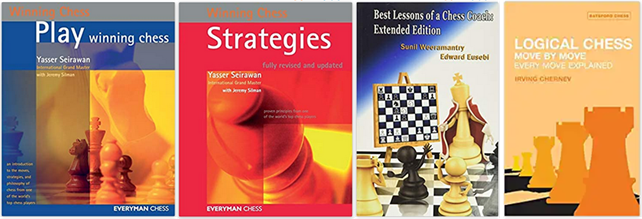I am a recreational chess player, hoping to understand the game a little more by reading chess books. I am looking for books that explain each and every move like Understanding Chess Move By Move by John Nunn. The only problem with this book is that fundamental concepts like pawn structure and the importance of the center are assumed knowledge. Although I am aware of these concepts, I have no idea why the center is important or how one can take advantage of it if the opponent willingly gives it up. I also do not know why, for example, one sometimes prefer the move Bd3 over Bc4 or vice versa and this is a point which the author does not go over. Sometimes people play Bc4, then trades with the knight. My inexperience tells me that here White played two moves only to lose the bishop, which does not seem ideal in the opening.
I suppose that I am looking for a book which explains all the fundamental concepts but not for complete beginners, either. I am aware of all the basic tactics like forks, pins, etc., and things like Scholar's mate, smothered mate, etc.
What are good books to address these issues and why do you recommend them?

